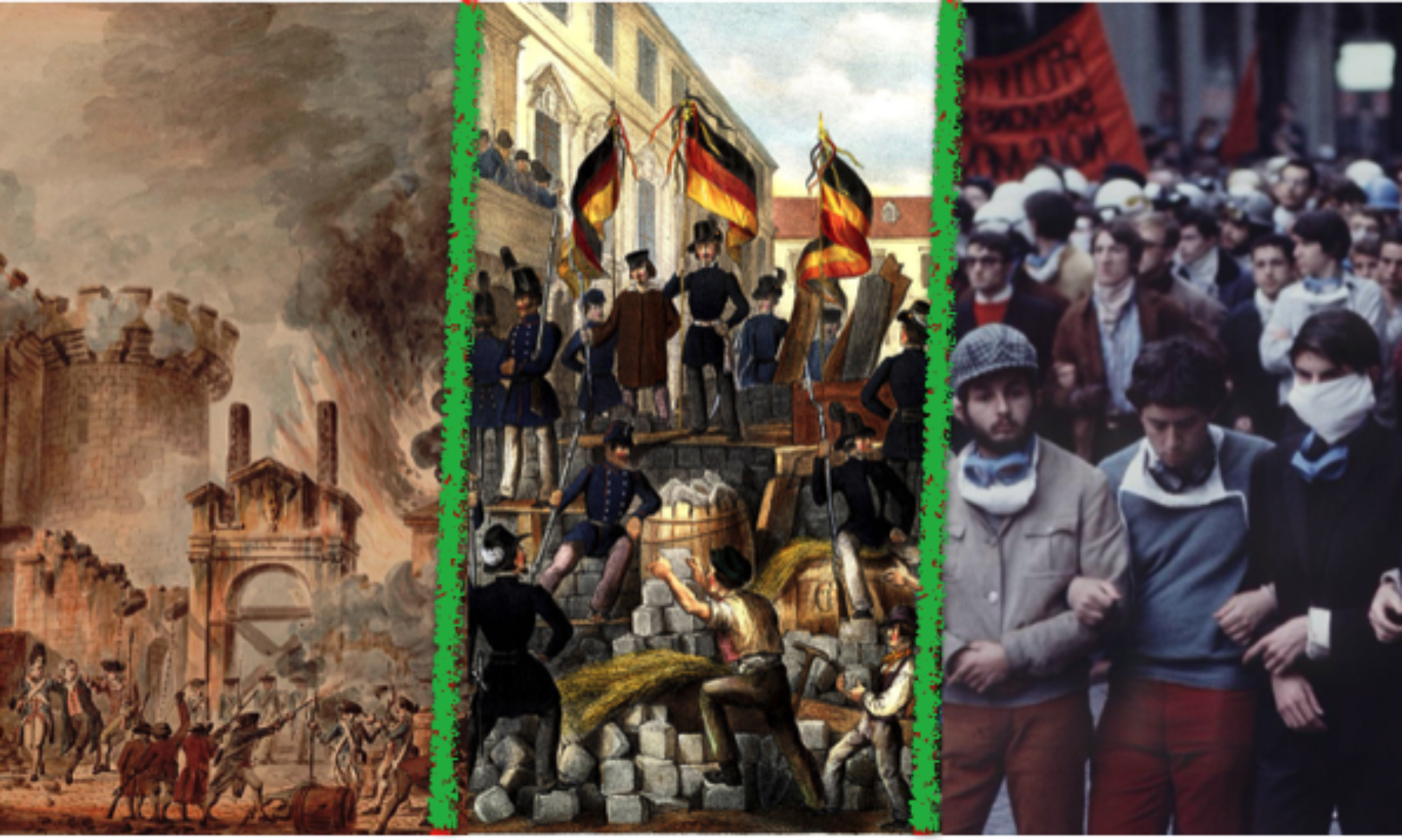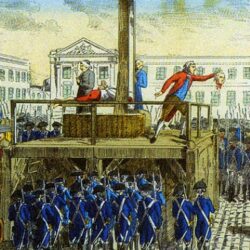In this chapter of 1968: Rethinking Frances Last Revolution there was one quote of particular interest to me. When describing the strikes of 1968 Vigna stated “The longest and most important strikes in French history involving for the first time both the private and public sector.” Later on in the selection he goes on to list 3 important factors in making this movement so exceptional. These three factors were duration, width, and actions taken by the participants. My question for the class is, what is the most important of these three factors in creating a successful strike? It seems to me that you certainly need a blend of all three but is there one that is more important than others?
Rebel As One
In Rethinking France’s Last Revolution we read a section that talked a lot about transnational cooperation between students. On 238 we are told when a popular German revolutionary figure named Daniel Cohn-Bendit was called an “undesirable alien” and banned from France. As a result students in the streets cried out “We are all undesirables! We are all foreigners! We are aliens!” My question is, what are the benefits of having a protest movement with strong transnational ties like the ones between Germany and France seen here?
A Good Rallying Cry?
When reading have the assigned have pages of 1968 a student generation in revolt, one line particularly stood out to me. This line was in the 2nd to last paragraph of page 144. The line was “students are the Jews of today”, this was a rallying cry as the students felt like they were being oppressed as the Jews were during World War Two. A personal fact about me is that I have an Aunt who works for the Holocaust museum. Last year the museum published an article calling people to stop using Holocaust analogies to describe the politics of modern times. My question is, do you think it was a good move for the students to compare themselves to the Jews during World War Two? Do you think people would be more likely to support their cause after hearing this statement?
https://www.ushmm.org/information/press/press-releases/why-holocaust-analogies-are-dangerous
The Chains of Conformity
On page 15 we are given the main goal of the situationist movement that being “to create situations in which powerless individuals have control over there daily lives.” This is obviously a very big goal to try to achieve. On page 8 there is a reference to the cult of celebrities and how we worship it as a way to fill holes in our own lives. In today’s society to you believe popular entertainment is still all encompassing in this way? Do you believe that some are powerless to change there situation in modern day society? It seems these problems are very relevant today but you will certainly get a different answer depending on who you ask.
Sam Stewart Discussion Post and Question
When looking a chapter 8 I found myself very interested in document M. In this document Napoleon says that he would “have willingly become a Washington” . He admired George Washington’s ideals of “modestly,disinterestedness, and wisdom.” Napoleon argues the only way to bring peace during his reign was to subdue other nations and run a totalitarian style empire. I wanted to pose this question to others in the class: Did Napoleon really desire Peace and neutrality like Washington or are his words in this document untrue? In my opinion, Napoleon is flat out lying and was just trying to improve his legacy through writing. He knew he would be in exiled for the rest of life so he figured he should make himself appear better to future generations. However if we look at his reign more closely we find that he had many opportunities to chose peace but yet kept pushing for war at every turn . Take the invasion of Russia of 1812, Napoleon figured that this invasion could distract people from his failures on other fronts. I don’t believe this is a strategy Washington would ever take, but what do you guys think?
Alex Garvey
I agree with Sam that Napoleon is lying in his writing and only trying to improve his legacy. His tactics to acquire a totalitarian empire oppose what Washington would do directly. It is evident he didnt really want peace and just wanted to become well liked because of his failures on the battlefield.
Jonathan Haines
I believe Napoleon was a great opportunist and was able to meticulously gain power with charisma and a form of manipulation towards the supporters of the revolution. Napoleon said he was Washington like but he truly stood for complete power and in the end he betrayed the revolution. Napoleon is very similar to other polarizing political leaders who talk big and rally people to follow him.

